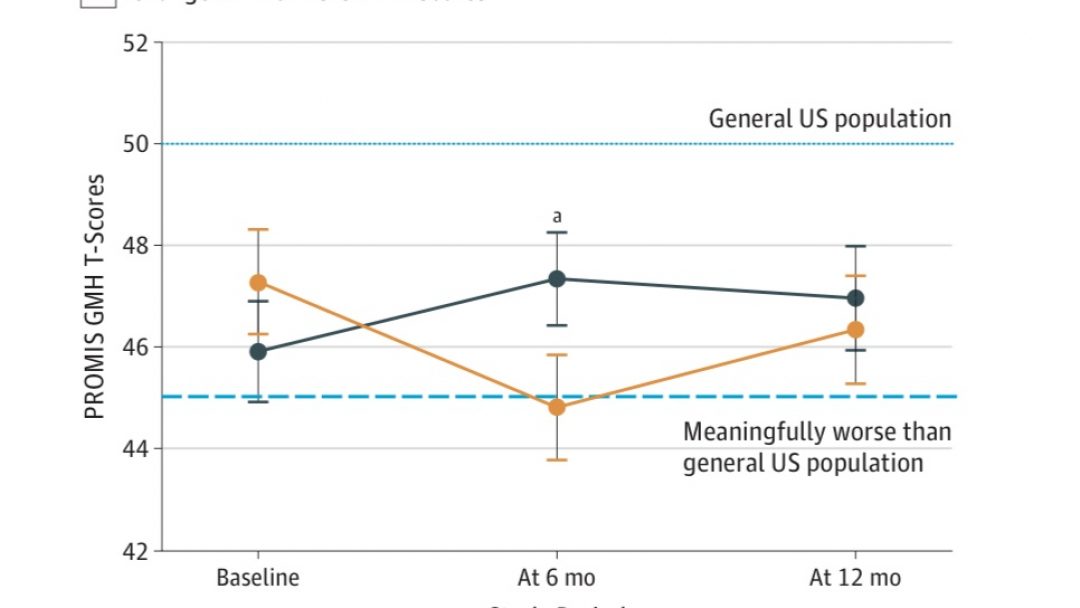I believe in functional medicine and its ability to heal the body of chronic diseases for the long term — or at least manage disease better, which is what Peel the Onion is all about. Working with a functional medicine doctor has allowed me to reduce my antibodies to a normal range. In light of this, I often get asked if there is clinical proof of its efficacy and if clinical trials have been performed. I have always said NO … and today, I can say YES!
It is ground-breaking, that one of the most respected medical institutions in the world, The Cleveland Clinic, led a study on the benefits of the Functional Medicine care model, and provides evidence that suggests that Functional Medicine is associated with improved health-related quality of life. In the past, Functional Medicine has often not been recognized by clinical medicine. That said, much additional work remains to be done to render findings more robust and universally applicable, and this study by no means is as convincing as the living, breathing, human case studies walking the streets, but it is a start.
Below are excerpts from the published study.
“Question Is the functional medicine model of care associated with patient-reported health-related quality of life?
Findings In this cohort study of 7252 eligible patients, functional medicine patients exhibited significantly larger improvements in Patient-Reported Outcome Measurement Information System Global Physical Health at 6 months than propensity-matched patients at a family health center. Improvements in Patient-Reported Outcome Measurement Information System Global Physical Health appeared to be sustained at 12 months but not significantly different from those at the family health center.

Meaning The findings of this study suggest that functional medicine may have the ability to improve global health in patients.
Background Chronic disease is challenging health in the United States with nearly 100 million people having 1 or more chronic conditions in 2014. These individuals contribute to 90% of the nation’s annual health care expenditure. Chronic disease is a major contributor to health care costs owing to the need for disease management and care for elderly individuals. Without new approaches that focus on reversing chronic disease, our current health care model will become economically unsustainable.
Nutrition and lifestyle choices can be used to manage chronic disease; however, their use as a first-line therapy has historically been challenging for primary care physicians because most feel underequipped to deliver lifestyle recommendations despite the fact that nutrition and lifestyle are a foundation for most guidelines. There are various reasons for this feeling of inadequate preparation, including nutrition education level, confidence in the available nutrition evidence, and time with the patient.
Moreover, many chronic diseases are not diseases per se, but rather descriptions of symptoms or laboratory abnormalities. Conventional care is focused on managing symptoms of disease (eg, hypertension, abnormal blood glucose level), but underlying causes are rarely identified.
The functional medicine model of care provides an operating system that works to reverse illness, promote health, and optimize function by addressing underlying causes, symptoms, and functional imbalances in interconnected biological networks. These imbalances may impair principal biological functions (assimilation, defense and repair, energy production, biotransformation, communication, transport, and structural integrity) that result from gene-environment interactions, including lifestyle, environmental toxins, and the microbiome. Functional medicine removes triggers for illness and provides inputs to restore and optimize health. Functional medicine also addresses social determinants, including the psychological, emotional, and spiritual aspects of health and disease. A foundation of functional medicine is the use of food as medicine to prevent, treat, and reverse chronic disease. The functional medicine model of care may have the ability to improve patient’s health-related quality of life (HRQoL), including physical function and well-being. Therefore, the purpose of the present study was to investigate the association between the functional medicine model of care and HRQoL by comparing functional medicine with care received in a family medicine setting.”
Read the entire study published by Jama Networks here.















